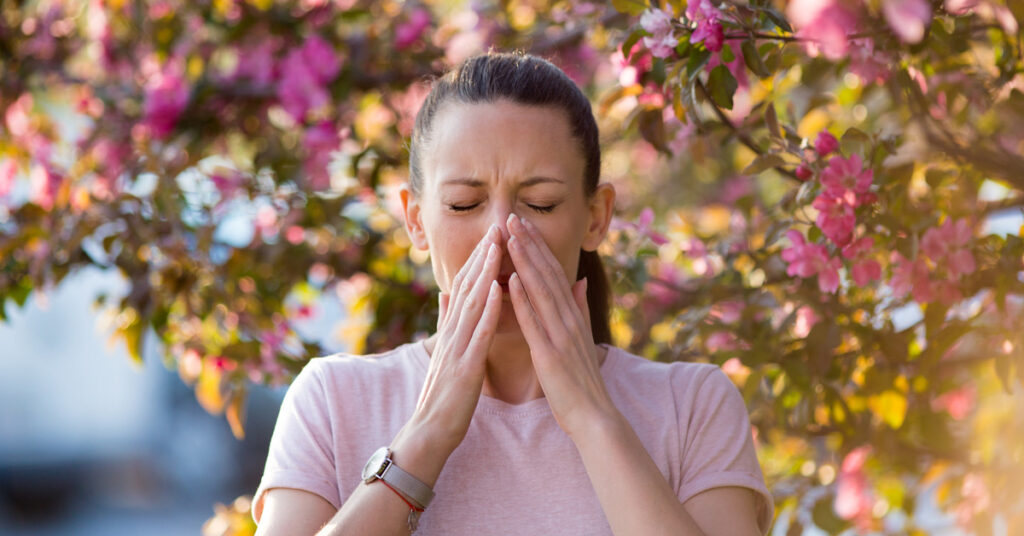Allergies
Quick Facts
Allergy Doctors
Mary Ann King, DO
Pediatrics
JR McPherson, MD
Pediatrics
Erin Livingston, MD
Pediatrics
Carlisle Livingston, MD
Pediatrics
Jason Simpson, DO
Pediatrics
Seasonal allergies are an inflammatory condition mediated by the body’s immune system. The body can respond to many different compounds called allergens. We most commonly think of allergens in the air such as pollen and pet dander. People also have allergies to food, medications, and insect stings.
Food allergies and seasonal allergies are treated differently.
Symptoms of allergies
These allergy symptoms can be very similar to colds but do not have a fever.
- Cough
- Runny nose
- Itching and watery eyes
- Sneezing
Other conditions
People who have seasonal allergies often suffer from other conditions. Things like eczema and asthma are associated with allergies. These three conditions together are the “allergic triad.”
Treatment
Treatment usually involves avoiding known triggers as well as medications. These medications include:
- Antihistamines tablets
- Nasal sprays
- Eye drops
- Allergy shots
Food Allergies
The best treatment for food allergies is avoidance. The foods most common to cause food allergies are:
- Peanut/tree nut
- Milk
- Eggs
- Wheat
- Soy
- Fish/Shellfish
Severe allergy
Anaphylaxis is a severe allergic reaction with systemic symptoms. This requires an EpiPen (epinephrine injection) or getting to your local ER quickly. These symptoms include:
- Wheezing/Shortness of breath
- Rash
- Face and tongue swelling
- Vomiting or diarrhea
- Itching
Allergy FAQs
How do you test for allergies?
The most accurate way to test is with skin testing. A small solution is placed under the skin to see if there is a reaction. There are some blood tests but they are not as accurate.
Can allergies be prevented?
Avoidance is best especially if you know your triggers. Staying indoors on high pollen days. Avoiding carpet and stuffed toys that store dust and mites. Using HEPA filters in the house and in vacuums can also help.






